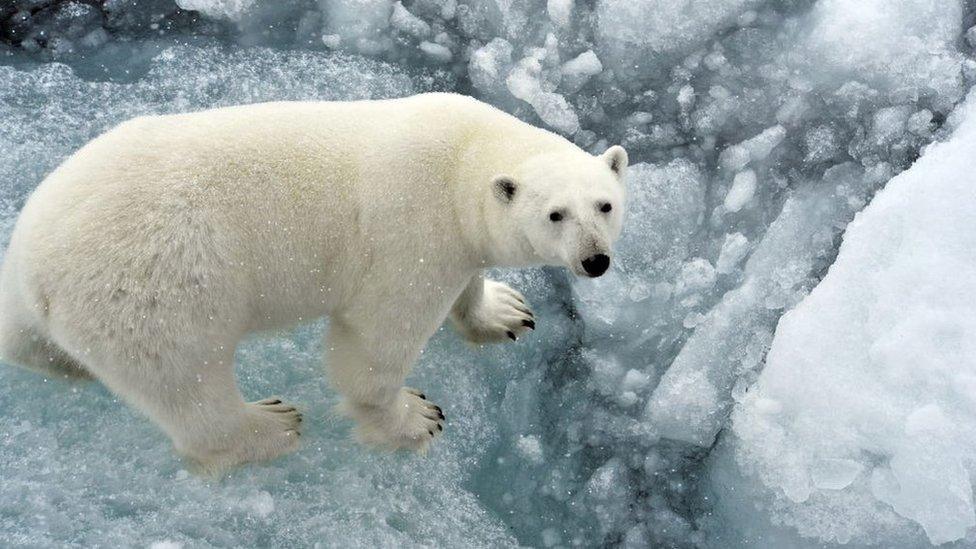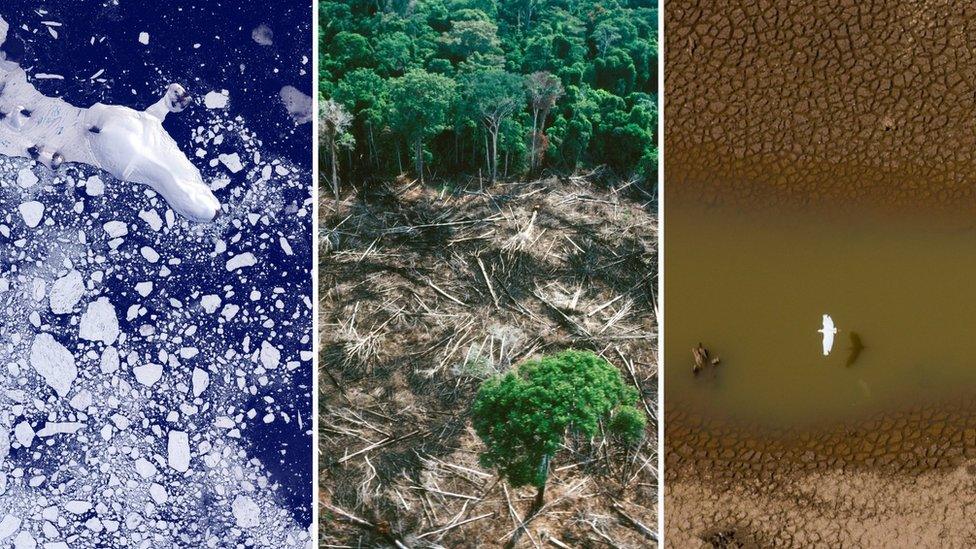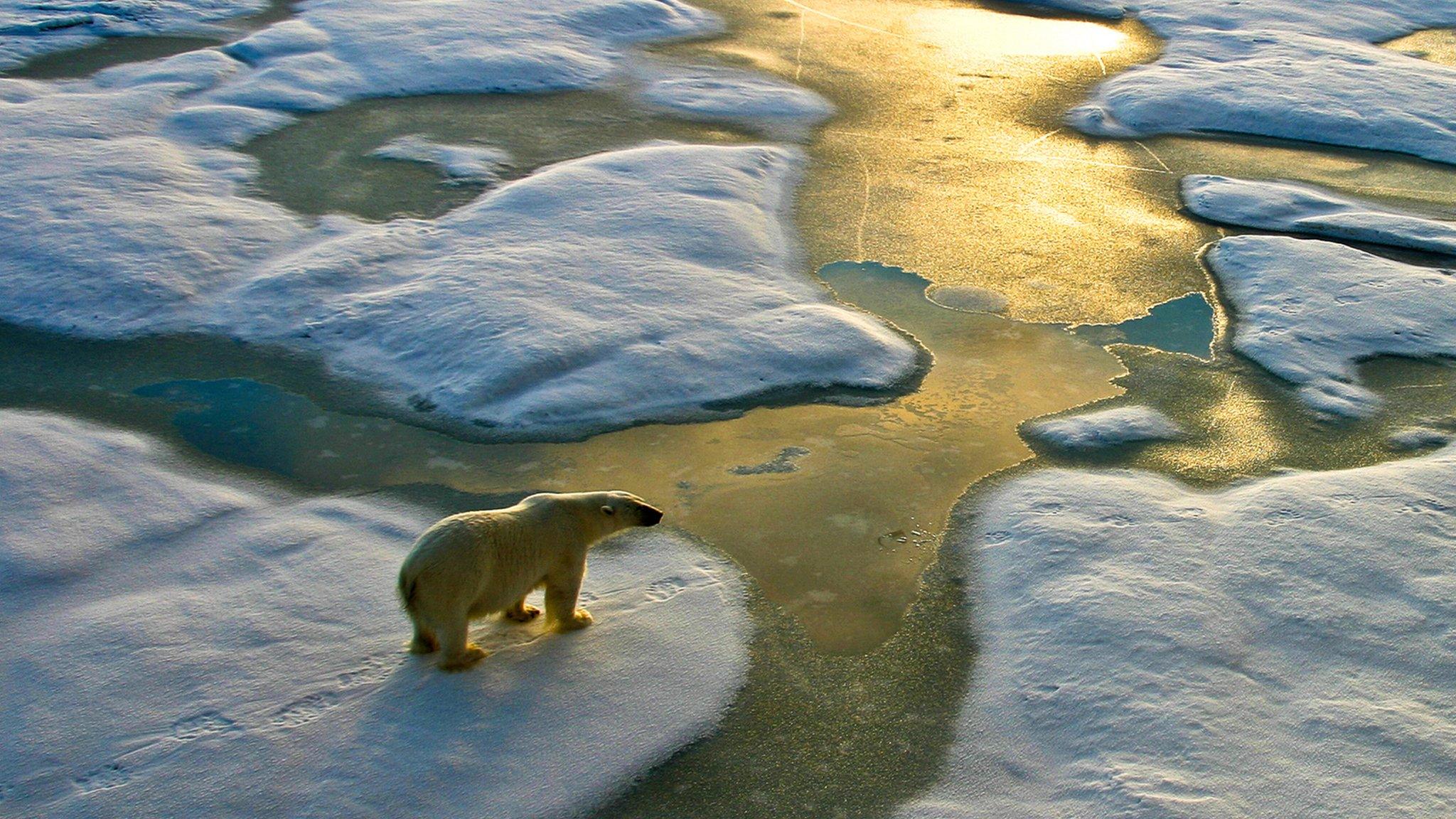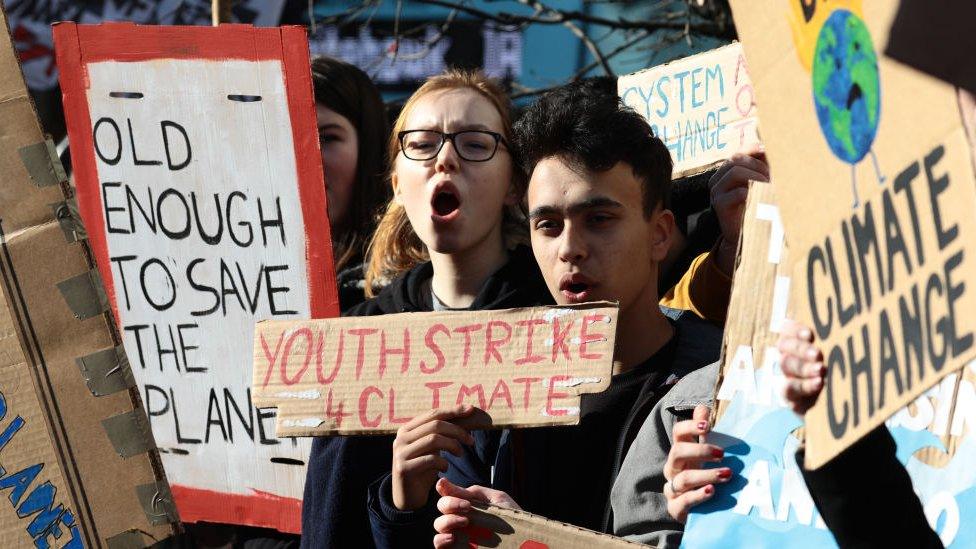Climate change: Global temperatures could rise by more than 1.5C in next five years
- Published
- comments

There's a "growing chance" that global temperatures will rise by more than 1.5C in the next five years, according to new research by the World Meteorological Organisation (WMO) and the Met Office.
In 2015 leaders from 195 countries met to sign the Paris Climate Agreement, which was a commitment that they would keep the global temperature increase "well below" 2C, and to try to limit it to 1.5C.
The new report shows that there is now a 20% chance that this important temperature target might be broken in any year before 2024.
Keeping the global temperature increase to 1.5C is considered to be very important by climate scientists, in order to avoid some of the worst effects of climate change.
Newsround's quick guide to climate change
Researchers say that the Earth's average temperature is already more than 1C higher than it was 170 years ago in the 1850s. Scientists look back this far because of something called the industrial revolution.
The industrial revolution was a period in history where more factories were built and started using machinery to make things. Many of these factories burnt fossil fuels like coal, releasing carbon dioxide into the atmosphere which is bad for the environment.
Today, many nations still release harmful pollution into the air, but under the Paris Climate Agreement almost 200 countries said they would make changes to try and reduce global carbon emissions in order to help the planet.
However, last November US President Donald Trump said America had changed its mind and was leaving the agreement.
Watch Leah's report from 2017 on why President Trump decided to pull the US out of a climate change deal
In this latest study, weather scientists from the Met Office, along with the WMO, looked at climate prediction data from the UK and nine other countries, including the US and China - these two countries are responsible for almost half (42%) of the world's combined carbon emissions.
The WMO secretary-general, Petteri Taalas, said: "This study shows - with a high level of scientific skill - the enormous challenge ahead in meeting the Paris Agreement on Climate Change target of keeping a global temperature rise this century well below 2C above pre-industrial levels, and to pursue efforts to limit the temperature increase even further to 1.5C."
The climate report also predicts that there will be an increase in the warming of the Arctic, compared to other areas in the world.
It says there will be an increased risk of storms across the Atlantic ocean and that this year, parts of South America, southern Africa and Australia will be drier than they have in the past - meaning they could have an increased risk of forest fires.

Climate change could lead to an increase in forest fires, extreme weather and rising sea levels
The study did not take in to account the reduction in carbon emissions around the world because of coronavirus, the UK's carbon emissions are predicted to fall by 11% this year because of the lockdown.
However, professor Taalas says that's not an excuse to relax when it comes to dealing with climate change:
"Whilst COVID-19 has caused a severe international health and economic crisis, failure to tackle climate change may threaten human wellbeing, ecosystems and economies for centuries."
"Governments should use the opportunity to embrace climate action as part of recovery programmes and ensure that we grow back better," added professor Taalas.
- Published8 October 2018

- Published23 September 2019

- Published16 February 2019

